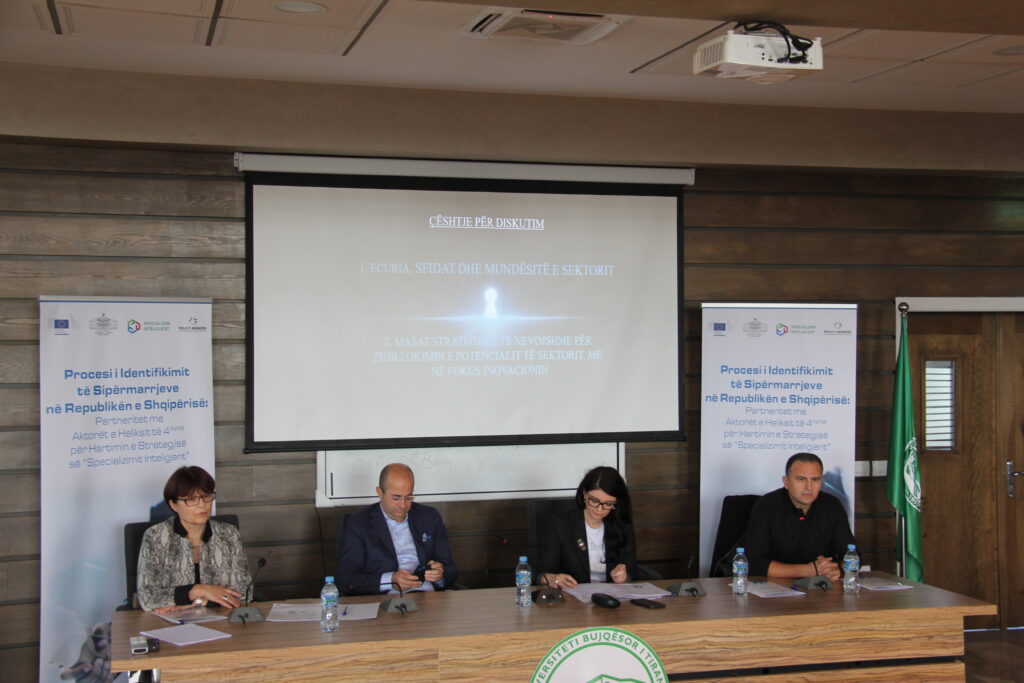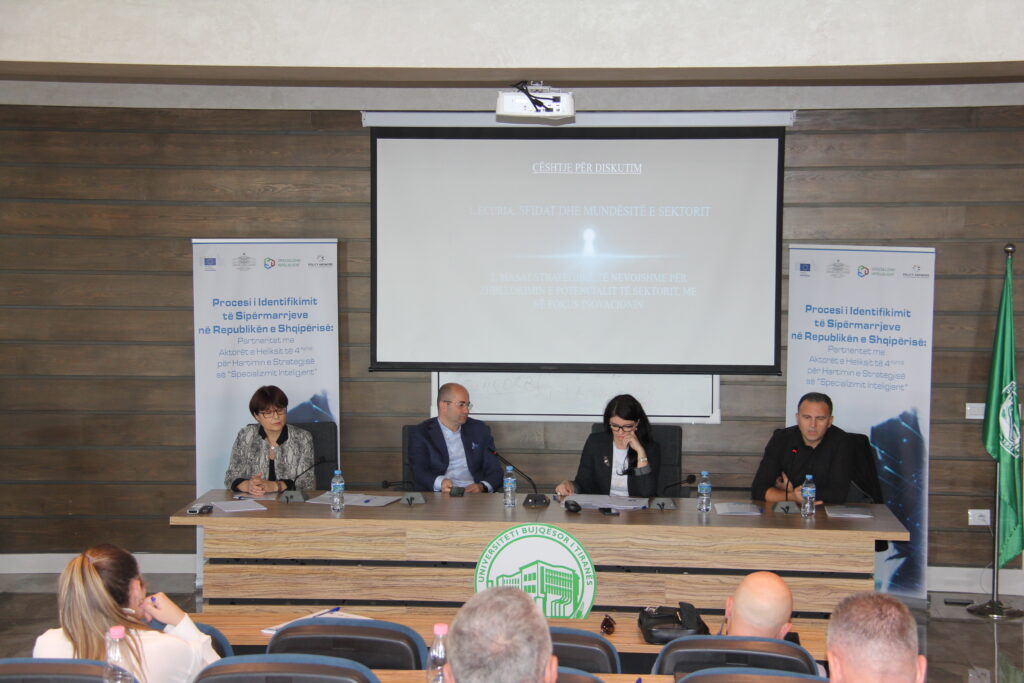The second activity organized under the framework of the Entrepreneurial Discovery Process in Albania, had as its primary focus the “Fisheries and Aquaculture” sector, identified as one of the primary domains for the country’s future economic, innovative, and scientific development during the mapping phase conducted in 2021. Through this activity, participants, representative of all four dimensions of the quadruple helix, were able to learn more about this initiative and share their perspective on the key strengths, weaknesses, challenges, and opportunities attributed to the Albanian Fisheries and Aquaculture sector, as well as the concrete measures that must be adopted to advance the development of this sector; all of which will serve as the basis for preparing the country’s smart specialization strategy.
Activities and Output:
In the first part of this event, the participants were introduced with the concept of the smart specialization strategy and Entrepreneurial Discovery Process, the effort that have been made so far to preparing this strategic document, and the activities that will be undertaken as part of the effort for implementing the “Entrepreneurial Discovery Process” in the Republic of Albania.
Whereas in the second session of the activity, attendees talked at length about the three main pillars of the Albanian Fisheries & Aquaculture sector, their current market share, how they’ve progressed over the past few years, and how they’re expected to progress in the future. Particularly, the sector’s potential was stressed by noting the continual increase in demand for Albanian fisheries goods on worldwide markets, which exceeds current output level. Other matters discussed during this session were also the primary factors that impede the ability of domestic producers to increase their production levels and better respond to foreign markets demands, with the quadruple helix actors emphasizing the lack of capital to invest, the scarcity of labour force, the difficulty in obtaining international certifications, poor management of fishing facilities, among others.
The focus of the third session was on identifying the tangible measures that must be presented to fully exploit the potential presented in this and overcome its obstacles.In particular, the attendees deliberated over how to better monitor the performance of the fisheries sector, increase the country export quotas, enhance collaboration across the domestic supply chain, fortify the role of fisheries non-profits and improve the overall effectiveness of existing programs in support the development of the Fisheries and Aquaculture sector in Albania.
Members of the Panel
Mr. Arben Shkodra: Secretary General of Albania Manufacturing Union (AMU), Member of the Inter-Institutional Working Group for the Smart Specialization Strategy and moderator of the event
Prof. Assoc. Edmond Hala: Deputy Dean of the Faculty of “Agriculture and Environment” for Institutional Relationships and Public at “Agriculture University or Tirana”
Prof. Assoc. Erjola Keci: Deputy Dean of the Faculty of Professional Studies at “Aleksander Moisiu University Durres”, and coordination of international projects on water management.
Prof.Asoc. Elvira Beli: Head of the department of the “Fisheries and Aquaculture” at “Agriculture University of Tirana’
Event organizers
This activity was organized by Future Center in collaboration with Inter-Institution Working Group, Albanian Agriculture Council (KASH) and the Albanian Manufacturing Union (AMU), and supported by the European Commission’s Joint Research Center (JRC) and the Policy Answer Project (Horizon Europe GA 10105887).



